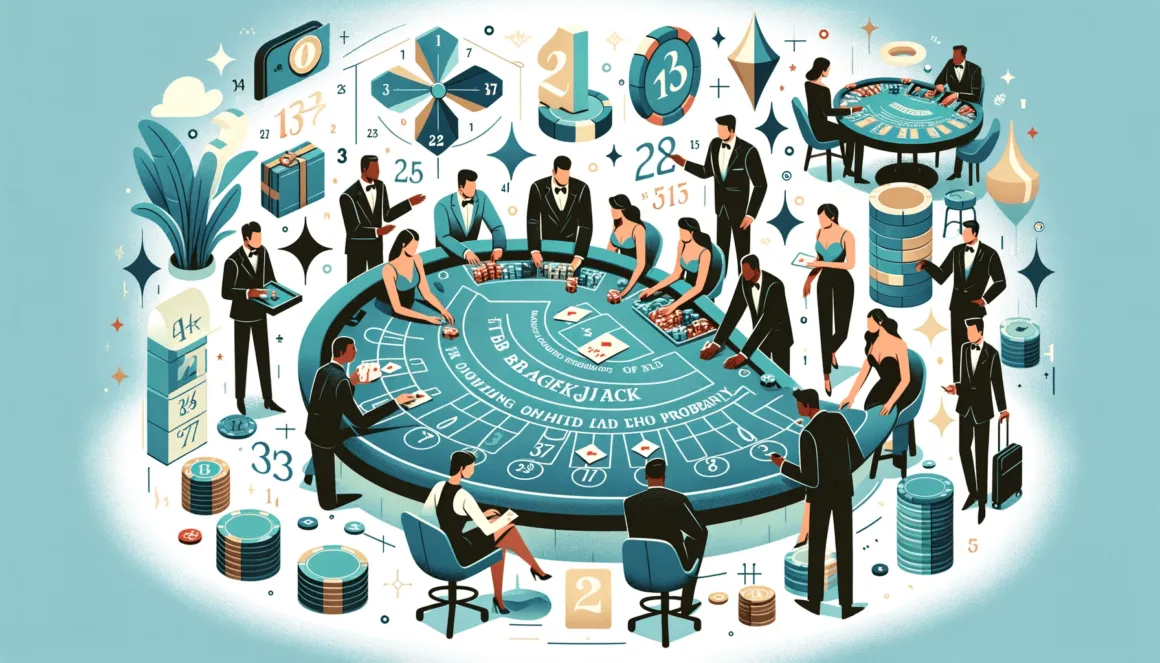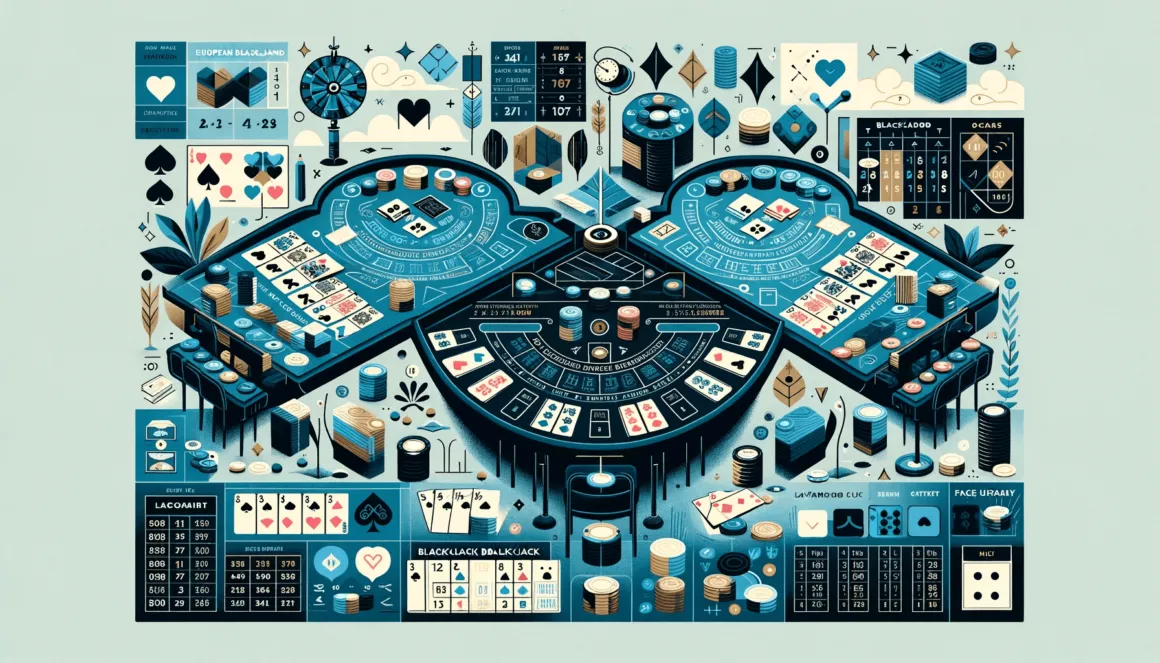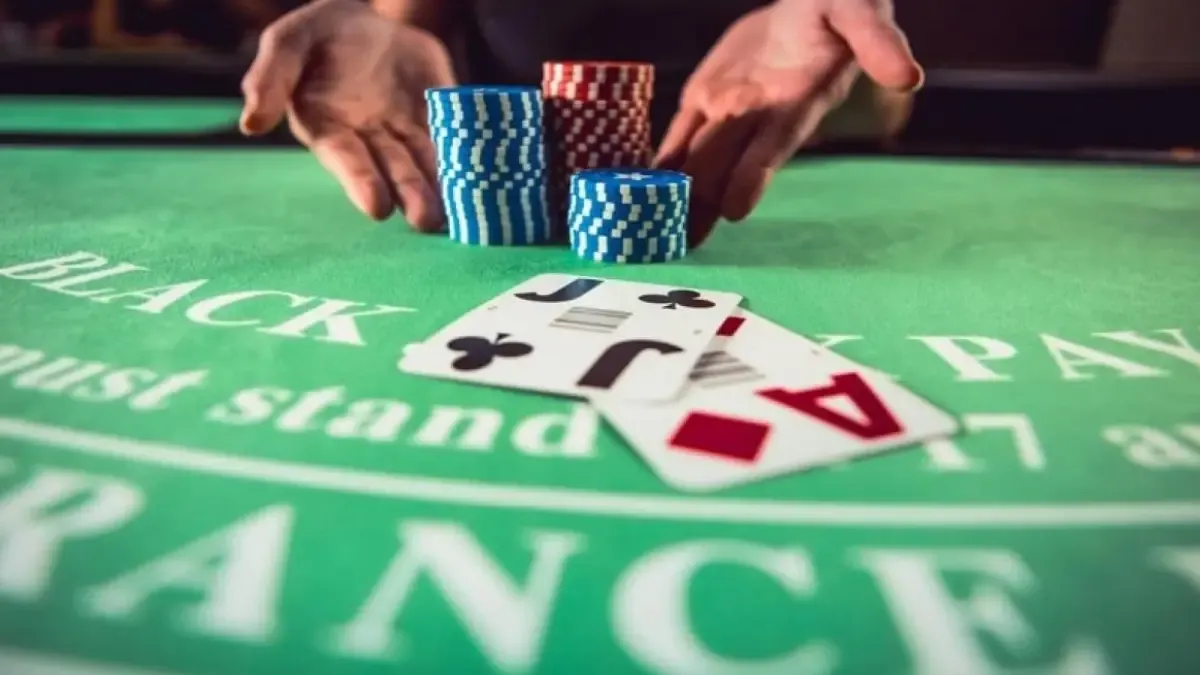
Understanding Blackjack Odds Increase Your Chances of Winning
Blackjack is one of the most popular casino games in the world, and for good reason. It’s a game of strategy, skill, and luck that offers players the opportunity to win big. However, like any other casino game, blackjack also has its fair share of odds and probabilities that players should be aware of.
In this article, we’ll take an in-depth look at blackjack odds and how they can affect your chances of winning. We’ll cover everything from the basic rules of the game to advanced strategies that can give you an edge over the house. So if you’re looking to improve your blackjack game and increase your chances of walking away with a profit, read on!

The Basics of Blackjack
Before we dive into the odds and probabilities of blackjack, it’s important to have a solid understanding of the game itself. Blackjack, also known as 21, is a card game where players compete against the dealer. The goal of the game is to get a hand value as close to 21 as possible without going over, or “busting.”
The game starts with each player and the dealer being dealt two cards. The player’s cards are dealt face-up, while the dealer’s first card is dealt face-down. This is known as the hole card and is only revealed once all players have finished their turns.
Each card in blackjack has a numerical value, with picture cards (jacks, queens, and kings) being worth 10 points and aces being worth either 1 or 11 points, depending on what is more beneficial to the player’s hand.
After the initial deal, players have the option to “hit” and receive another card, “stand” and keep their current hand, “double down” and double their bet while receiving one more card, or “split” pairs into separate hands. The dealer must follow specific rules for their turn, usually hitting until they reach a hand value of at least 17.
The player with the hand closest to 21 without going over wins. If the player and dealer both have the same hand value, it results in a tie or “push.”
Now that we have a basic understanding of the game, let’s take a closer look at the odds and probabilities that come into play when playing blackjack.
The House Edge
In any casino game, the house always has an advantage over the players. This is known as the house edge and is what allows casinos to make a profit. In blackjack, the house edge varies depending on the specific rules of the game and the skill level of the player.
On average, the house edge in blackjack is around 0.5%. This means that for every $100 wagered, the casino will make a profit of 50 cents. However, with proper strategy and knowledge of the odds, players can reduce the house edge and increase their chances of winning.
Blackjack Odds and Probabilities
One of the key factors in reducing the house edge in blackjack is understanding the odds and probabilities of the game. By knowing the likelihood of certain outcomes, players can make informed decisions and improve their chances of winning. Let’s take a closer look at some of the most important odds and probabilities in blackjack.
Probability of Busting
As mentioned earlier, busting in blackjack means going over a hand value of 21. This results in an automatic loss for the player. The probability of busting varies depending on the player’s initial hand and the number of cards they choose to hit.
According to mathematical calculations, a player has a 28% chance of busting if they start with a hand value of 12, and a 69% chance of busting with a hand value of 16. It’s important to keep these probabilities in mind when deciding whether to hit or stand.
Probability of Getting a Blackjack
A blackjack, or a hand value of 21 with only two cards, is the best possible hand in the game. The probability of getting a blackjack varies depending on the number of decks being used in the game. In a single-deck game, the probability is around 4.83%, while in an eight-deck game, it drops to 4.78%.
Probability of Winning a Hand
The overall probability of winning a hand in blackjack depends on various factors, such as the number of decks being used, the specific rules of the game, and the skill level of the player. However, on average, a player’s chances of winning a hand are around 42%.
Odds of Winning with Different Starting Hands
In blackjack, the starting hand you receive can significantly impact your chances of winning. Some hands have a higher probability of winning, while others have a higher chance of busting. Let’s take a look at the odds of winning with different starting hands:
- Pair of Aces – 31%
- Pair of Eights – 46%
- Pair of Twos – 35%
- Ace & Eight – 53%
- Ten & Two – 34%
- Ace & Seven – 64%
As we can see, the odds of winning significantly increase when starting with a pair of eights, ace and eight, or ace and seven. These are considered strong starting hands and should be played accordingly.
Odds of Winning with Different Dealer Up Cards
The dealer’s up card, or the card that is visible to players, also has a significant impact on the odds of winning a hand. Here are the odds of winning against different dealer up cards:
- Against a Two – 35%
- Against a Three – 37%
- Against a Four – 40%
- Against a Five – 42%
- Against a Six – 42%
- Against a Seven – 26%
- Against an Eight – 24%
- Against a Nine – 23%
- Against a Ten or Face Card – 23%
As we can see, the dealer’s up card of seven, eight, nine, ten, or a face card has the lowest odds of winning. This is because these cards have a high probability of resulting in a strong hand for the dealer.
Blackjack Strategy: Using Odds to Your Advantage

Now that we’ve covered the basic odds and probabilities in blackjack, let’s take a look at how players can use this knowledge to their advantage and reduce the house edge even further.
Basic Strategy
Basic strategy in blackjack involves making the most optimal decisions based on the player’s starting hand and the dealer’s up card. It takes into account the odds and probabilities we discussed earlier to determine the best course of action for each scenario.
For example, if a player has a hard 12 and the dealer’s up card is a six, basic strategy would recommend hitting. This is because the odds of busting are lower than the odds of the dealer having a stronger hand.
By following basic strategy, players can reduce the house edge to around 0.5%, giving them a much better chance of beating the casino.
Card Counting
Card counting is a blackjack strategy that involves keeping track of the cards that have been dealt to determine the probability of certain cards appearing in future hands. This technique is not illegal, but casinos frown upon it and may ask players to leave if they suspect they are counting cards.
The idea behind card counting is that if there is a higher proportion of high-value cards remaining in the deck, the player has a higher chance of getting blackjack. This gives them a significant advantage over the dealer and can result in more winning hands.
While card counting can be a useful strategy, it requires a lot of practice and skill to be effective. It’s also important to note that card counting is not a guarantee of winning, as the odds are still in favor of the house.
Progressive Betting Systems
Progressive betting systems involve changing your bet size based on the outcome of previous hands. The most popular progressive betting system in blackjack is the Martingale system, where players double their bet after each loss and return to their initial bet after a win.
The idea behind this system is that eventually, the player will win and recoup all of their losses. However, this strategy can quickly lead to significant losses if there is a string of consecutive losses, and it’s not recommended for long-term use.
Tips for Improving Your Blackjack Odds

Aside from strategies, there are a few other things players can do to improve their odds of winning in blackjack.
Find Tables with Favorable Rules
As mentioned earlier, the specific rules of a blackjack game can greatly impact the house edge. Finding tables with favorable rules, such as the dealer standing on soft 17 or the ability to double down after splitting, can give players an advantage over the casino.
Avoid Insurance Bets
Insurance bets are a side bet offered to players when the dealer’s up card is an ace. This bet allows players to protect themselves against the dealer getting blackjack. However, the odds of the dealer having blackjack are very slim, and insurance bets have a high house edge. It’s best to avoid them altogether.
Take Breaks and Manage Your Bankroll
One common mistake made by many blackjack players is playing for too long without taking breaks. It’s important to take regular breaks to rest your mind and make more informed decisions.
Additionally, managing your bankroll is crucial in any casino game. Set a budget for yourself and stick to it, even if you’re on a hot streak. It’s easy to get caught up in the excitement of the game and overspend, leading to significant losses in the long run.
Conclusion: Know Your Odds and Win at Blackjack
Blackjack is a game of skill and strategy, but it’s also heavily influenced by odds and probabilities. By understanding these factors and using them to your advantage, you can significantly improve your chances of winning and reduce the house edge.
Remember to always play responsibly and use proper money management techniques to avoid significant losses. With the right strategy and a bit of luck, you could walk away from the blackjack table with a profit and a newfound appreciation for the game’s odds and probabilities.

